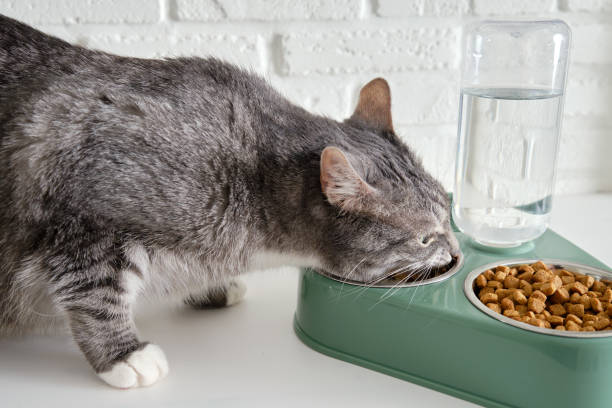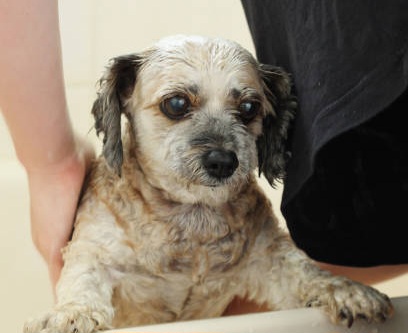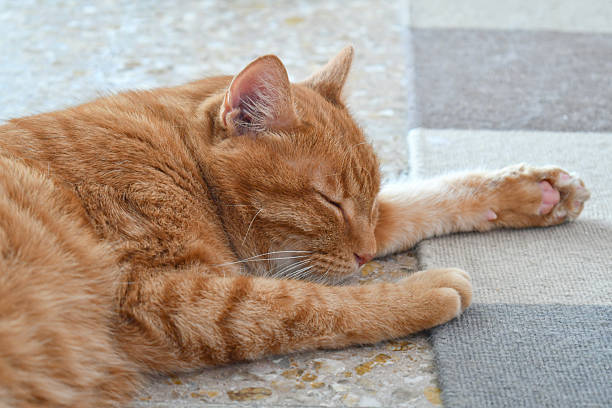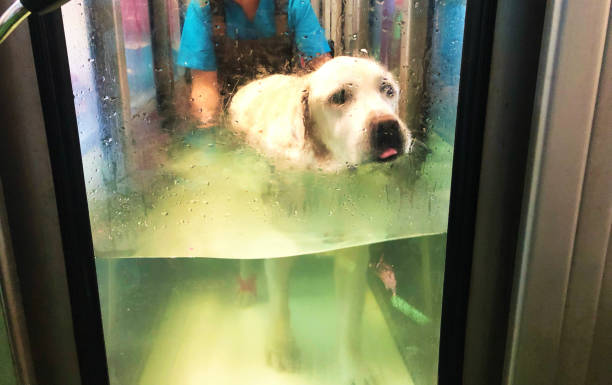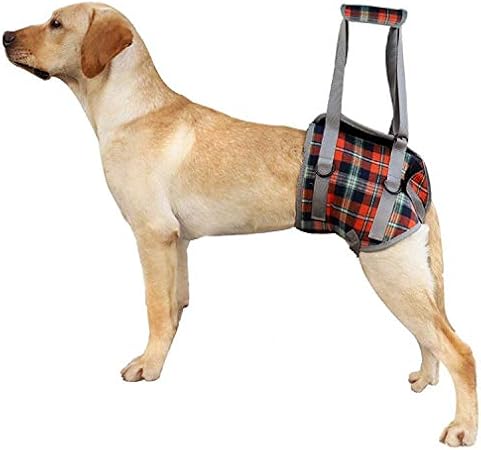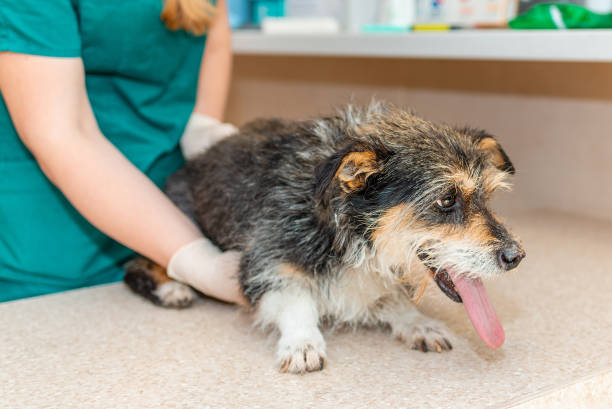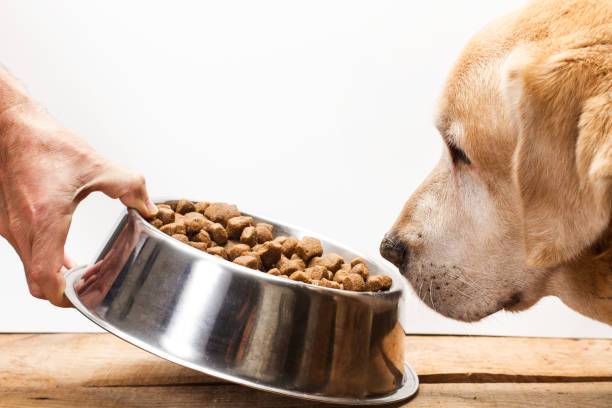Why Is My Senior Cat Losing Weight but Still Eating?
It can be worrying to notice your senior cat losing weight but eating as usual. Many cat owners expect appetite loss to come with weight changes, so seeing a cat eat regularly yet still get thinner feels confusing and even scary. As cats grow older, their bodies change in ways that aren’t always easy to spot right away. This is especially true for older cat weight loss causes, which often don’t show clear signs at first. Sometimes it seems like nothing is wrong as your cat still comes running for food and finishes every meal. But something deeper could be going on.
You may start to wonder if it’s normal aging or something more serious. Cat eating but losing weight isn’t always a simple issue, especially in senior cats. It could point to anything from minor digestive issues in aging cats to more complex problems like chronic illness in older cats. In some cases, unexplained weight loss in cats could be an early clue to conditions like feline hyperthyroidism symptoms, cat diabetes signs, or kidney disease in cats. That’s why it’s important to understand what could be causing this shift and what signs to look for as your cat continues to age.
Is It Normal for a Senior Cat to Lose Weight While Eating?
A little weight loss can be part of normal aging in cats, especially if it happens slowly over time. As cats age, their metabolism changes. This means their bodies may burn calories differently or have a harder time absorbing nutrients, even if they’re eating the same amount of food. These senior cat metabolism changes can make them look thinner even when their eating habits stay the same.
That said, not all weight loss should be brushed off. If your senior cat is losing noticeable weight but still eating well, it might point to something more than just aging. Cat eating but losing weight can sometimes be linked to health issues that develop gradually. Some older cat weight loss causes are harmless, but others may need attention from a vet.
Common health-related reasons include digestive issues in aging cats, malabsorption in senior cats, or more serious conditions like kidney disease in cats and cat thyroid imbalance. Chronic illness in older cats often doesn’t show dramatic signs at first, so weight loss may be one of the earliest hints.
Other possible reasons include feline hyperthyroidism symptoms, cat diabetes signs, and gastrointestinal problems in cats. Unexplained weight loss in cats can even be one of the early signs of cat cancer.
Even if your cat seems fine otherwise, it’s still helpful to keep track of changes. Veterinary professionals recommend regular monitoring for senior cats. Cat weight monitoring in old age is an easy way to notice problems early. It also helps you stay on top of your senior cat’s nutritional needs so they stay healthy and active for longer.
Common Medical Reasons Your Older Cat Is Losing Weight
If your senior cat is losing weight but eating, it may be more than just aging. There are several medical reasons this can happen, and many of them need a vet’s help to manage. Some issues develop slowly, so weight loss can be one of the first signs something’s wrong.
Feline Hyperthyroidism
This is one of the most common older cat weight loss causes. It happens when the thyroid gland makes too many hormones. Cats may eat more than usual but still lose weight. Other feline hyperthyroidism symptoms include being more active or restless, vomiting, or having messy stools. It’s treatable, but early care matters.
Cat Diabetes
Cat diabetes signs can be easy to miss at first. You might notice your cat drinking a lot of water, peeing more often, or acting tired. They may eat normally or even more than usual and still lose weight. This happens because their body can’t use sugar properly for energy.
Kidney Disease
Kidney disease in cats often shows up as steady weight loss, changes in appetite, and increased thirst. It’s a common issue in older cats and can affect their body’s ability to stay balanced and healthy.
Cancer
Unexplained weight loss in cats can sometimes be one of the early signs of cat cancer. This doesn’t always mean a visible lump. Sometimes, it just starts with changes in weight, behavior, or digestion.
Ongoing Illness
Chronic illness in older cats can also cause long-term weight changes. Conditions like gastrointestinal problems in cats, malabsorption in senior cats, or cat thyroid imbalance affect how well food is processed. This can lead to weight loss even with regular eating.
Keeping up with cat weight monitoring in old age and paying attention to senior cat nutritional needs can help you catch changes early.
Could It Be a Digestive Problem?
Sometimes, a senior cat losing weight but eating can be linked to trouble in the digestive system. As cats get older, their digestive health can start to change, making it harder for their bodies to fully break down and use the nutrients in their food. Even with a good appetite, they may not be getting everything they need from meals.
Digestive issues in aging cats often show up slowly. You might notice softer stools, more frequent litter box visits, or occasional vomiting. These signs can point to deeper problems like malabsorption in senior cats, where the body can’t properly absorb vitamins, fats, or proteins. This can lead to your cat looking thinner over time, even though nothing has changed with their diet.
Gastrointestinal problems in cats, such as inflammation or irritation in the gut, can also play a part. These issues may not always cause pain or major behavior changes, which is why weight loss can be one of the only early signs.
Since older cat weight loss causes can be tricky to spot, it’s helpful to pay attention to even small changes. Regular cat weight monitoring in old age and a look at their senior cat nutritional needs can go a long way in catching problems early.
Is Your Cat Getting Enough Nutrition?
If your senior cat is losing weight but eating, nutrition could be part of the problem. As cats get older, their bodies change in how they digest food and absorb nutrients. Even if your cat is finishing their meals, they may not be getting what they need to stay healthy.
Senior cat nutritional needs are different from those of younger cats. Older cats often need food that is:
- Higher in quality protein to support muscle health
- Easier to digest, with gentle ingredients
- Balanced with healthy fats to maintain energy
- Designed to support kidney health and digestion
Without these, they can slowly lose weight, even with a normal appetite.
Malabsorption in senior cats means the nutrients from food aren’t being fully taken in by the body. This can happen due to age-related changes in the gut or underlying issues like gastrointestinal problems in cats. Over time, this can lead to cat eating but losing weight, which often leaves owners confused.
A senior-specific diet can make a big difference. It’s designed with ingredients that are easier on an aging stomach and help support things like cat thyroid imbalance and senior cat metabolism changes. This is especially helpful when dealing with older cat weight loss causes that aren’t tied to something serious like feline hyperthyroidism symptoms or kidney disease in cats.
Noticing small changes in your cat’s weight or how they look and feel can give you a heads-up before bigger issues develop.
Thyroid and Hormonal Imbalances in Older Cats
Cat thyroid imbalance is a common issue that affects many senior cats. This happens when the thyroid gland produces too much hormone, a condition often called feline hyperthyroidism. The thyroid hormone controls how the body uses energy, so when there is too much, the cat’s metabolism speeds up.
Because of these senior cat metabolism changes, you might notice your senior cat losing weight but eating more than usual. This happens because the extra thyroid hormone makes the body burn calories faster than it can replace them, even if the cat is eating plenty of food. It’s one of the more common older cat weight loss causes.
Feline hyperthyroidism symptoms include a high appetite paired with weight loss, restlessness, increased thirst, and sometimes vomiting or diarrhea. These signs can overlap with other problems like cat diabetes signs or gastrointestinal problems in cats, so careful cat weight monitoring in old age is important.
Thyroid issues are a type of chronic illness in older cats that can affect overall health and nutrition. If left untreated, it can cause serious complications, including effects on the kidneys. Understanding this condition helps you recognize when your cat might need a vet’s help to manage these hormonal imbalances.
If your cat is cat eating but losing weight, thyroid imbalance could be one reason to consider alongside other possible health concerns.
Monitoring Weight Changes in Senior Cats
Watching your cat’s weight becomes very important as they get older. Cat weight monitoring in old age helps spot health issues early before they become serious. Weight loss in senior cats is often one of the first signs of problems like older cat weight loss causes such as chronic illness in older cats, kidney disease in cats, or cat thyroid imbalance.
It’s a good idea to start checking your cat’s weight regularly once they reach about seven years old. At this age, many cats begin to experience senior cat metabolism changes and other health challenges that can affect their weight. Weighing them once a month can help you know what’s normal and when to be concerned.
If you notice your senior cat losing weight but eating normally, it’s important to pay attention. This could mean digestive issues in aging cats or malabsorption in senior cats. Keeping a simple record of their weight makes it easier to share details with your vet and helps with early detection of things like feline hyperthyroidism symptoms or cat diabetes signs.
Tracking weight is a simple and effective way to support your senior cat’s health and senior cat nutritional needs, helping them stay comfortable and happy as they age.
Other Possible Causes of Unexplained Weight Loss
Sometimes, a senior cat losing weight despite eating normally can be due to reasons other than illness. There are a few non-medical factors that might cause your senior cat to lose weight even though they’re still eating well. Here are some common ones to consider:
Environmental stress
Changes in your cat’s surroundings, like moving to a new home, new people or pets, or loud noises, can cause stress. Older cats are especially sensitive, and stress can affect how their body uses food or even lower their appetite, leading to weight loss.
Poor quality food
Not all cat food meets the special needs of senior cats. If your cat’s diet lacks important nutrients, they might not absorb enough energy even if they eat regularly. This can cause malabsorption in senior cats and contribute to weight loss over time.
Medication side effects
Some medicines given for chronic illness in older cats or other health problems might upset their stomach or interfere with digestion. These side effects can make it harder for your cat to keep weight on, even if they seem to be eating fine.
These factors are important to think about alongside medical problems like feline hyperthyroidism symptoms or cat diabetes signs. Knowing all the reasons behind your senior cat losing weight but eating helps you make sure they stay as healthy and comfortable as possible.
When to Visit the Vet
If your senior cat is losing weight but eating, it’s important to know when a vet checkup is needed. Some signs can show that your cat may be dealing with health problems related to older cat weight loss causes or chronic illness in older cats.
Signs that mean it’s time for a checkup:
- Sudden or unexplained weight loss even when your cat is eating well
- Changes in appetite, such as eating less or more than usual
- Increased thirst or urination, which can be cat diabetes signs
- Lethargy or less interest in activities they used to enjoy
- Vomiting or diarrhea, which may point to gastrointestinal problems in cats
- Changes in behavior like hiding, irritability, or restlessness
- Poor coat condition or signs of discomfort
- Difficulty breathing or coughing, which can relate to chronic illness in older cats
During a senior cat health exam, the vet will carefully check your cat’s weight as part of regular monitoring in older cats. They will listen to the heart and lungs, examine the mouth and teeth, and check for any lumps or swelling that could indicate early signs of illness. Blood tests may be done to check for issues like kidney disease or thyroid imbalance. The vet will also discuss your senior cat’s nutritional needs, suggest diet changes if needed, and recommend a plan for regular weight monitoring to help catch any problems early.
Regular vet visits help catch issues before they become serious and support your senior cat’s health and happiness. Professional veterinary organizations provide comprehensive guidelines for senior cat care.
Tests Your Vet May Recommend
When your senior cat is losing weight but eating, the vet may suggest a few tests to find out what’s going on. These tests help uncover older cat weight loss causes that aren’t obvious just by looking.
Blood Tests
Blood tests check the overall health of your cat’s organs, including the liver and kidneys. They can show if your cat has chronic illness in older cats like kidney disease or diabetes. This helps the vet understand how well the body is functioning.
Thyroid Panel
A thyroid panel is important to detect cat thyroid imbalance, especially feline hyperthyroidism symptoms. This condition often causes weight loss despite an increased appetite because the metabolism speeds up too much.
Urinalysis
Urinalysis looks at the urine to check for infections, kidney disease in cats, or diabetes signs. It gives clues about the health of the kidneys and helps catch issues that could cause unexplained weight loss in cats.
Fecal Examination
This test checks for parasites or gastrointestinal problems in cats that might cause malabsorption in senior cats. Sometimes digestive issues in aging cats lead to poor nutrient absorption, causing weight loss even when eating normally.
These tests together help vets identify the exact reason behind your senior cat losing weight but eating, so the right care can begin quickly.
How to Support Your Cat at Home
Helping a senior cat that is losing weight but still eating involves a few important steps to make life easier and healthier for your furry friend.
Nutrition Tips
- Provide high-quality food made for senior cats. These meals meet the special senior cat nutritional needs that change as metabolism slows down.
- Offer smaller, frequent meals instead of one or two big ones. This helps with digestion and keeps energy levels steady.
- Consider wet food or adding water to dry food. Older cats often face digestive issues in aging cats, and wet food can be easier on their stomachs and helps with hydration.
Creating a Low-Stress Environment
- Keep your cat’s favorite spots quiet and comfortable to reduce stress. Environmental stress can worsen chronic illness in older cats or digestive problems.
- Limit loud noises and sudden changes around the home so your cat feels safe.
How to Encourage Consistent Feeding and Hydration
- Place food and water bowls in calm, easy-to-reach areas.
- If your cat has trouble drinking, try a pet fountain or wet food to encourage hydration.
- Monitor your cat’s eating habits and weight regularly to spot any issues early.
Supporting your senior cat at home helps manage older cat weight loss causes and keeps your cat feeling better. Remember, weight loss even when a cat is eating may point to health issues like cat thyroid imbalance or feline hyperthyroidism symptoms. Working closely with your vet and giving gentle care at home can make a big difference in your cat’s comfort and happiness.
